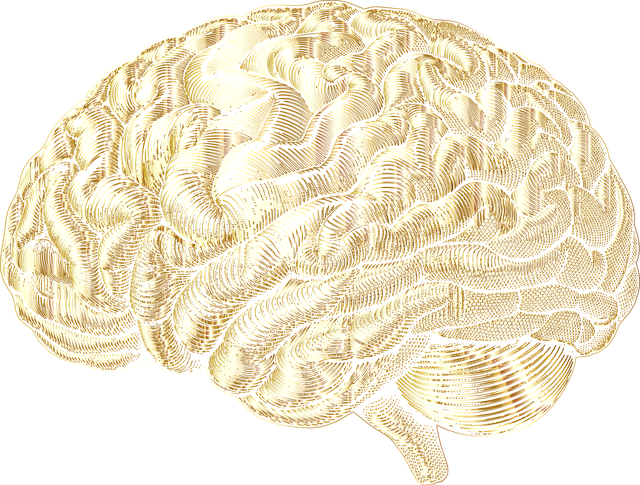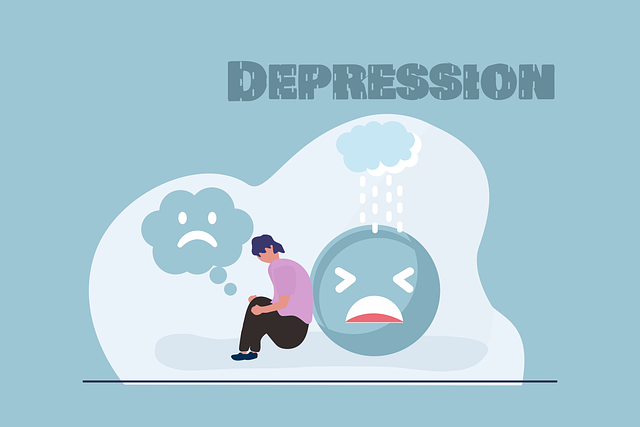Aurora's specialized therapy offers effective treatment for PTSD, employing CBT, EMDR, and holistic approaches to manage symptoms. The initial diagnosis process involves consultations and assessments, followed by personalized plans focusing on emotional healing. Aurora PTSD therapy combines traditional talk therapy with innovative techniques, fostering resilience through empathy building and tailored self-care. A supportive environment, emphasizing self-care practices and reduced stigma, enables individuals to navigate their journey. Accessing resources like Aurora PTSD therapy sessions, support groups, and advocacy helps those affected by PTSD, improving well-being and community support.
Navigating mental health care can be overwhelming, especially for those dealing with complex conditions like Post-Traumatic Stress Disorder (PTSD). This comprehensive guide aims to demystify PTSD, offering insights into its symptoms and profound impact. We explore the diagnosis process, highlighting professional assessments and cutting-edge tools. The article delves into therapeutic approaches, including innovative Aurora therapy techniques, and provides practical self-care strategies for a supportive environment. Additionally, it navigates available resources and support networks, empowering individuals to find suitable treatment options and build resilient communities.
- Understanding Post-Traumatic Stress Disorder (PTSD): Symptoms and Impact
- The Diagnosis Process: Professional Assessment and Tools
- Therapeutic Approaches for PTSD: Aurora Therapy Techniques
- Creating a Supportive Environment: Self-Care and Coping Strategies
- Resources and Community: Navigating Treatment Options and Support Networks
Understanding Post-Traumatic Stress Disorder (PTSD): Symptoms and Impact

Post-Traumatic Stress Disorder (PTSD) is a mental health condition that can impact individuals following exposure to traumatic events. It’s a complex disorder that affects people in various ways, often causing intense emotions and physical reactions. Symptoms of PTSD can include flashbacks or reliving the trauma, nightmares, severe anxiety, and uncontrollable thoughts about the event. Those affected may also experience emotional detachment from others, difficulty concentrating, and heightened irritability.
In Aurora, post-traumatic stress disorder therapy plays a pivotal role in helping individuals navigate and overcome these challenges. Through specialized treatments, such as cognitive behavioral therapy (CBT) and eye movement desensitization and reprocessing (EMDR), patients learn emotional well-being promotion techniques to manage their symptoms effectively. Stress management and conflict resolution techniques are also integral parts of the therapeutic process, empowering individuals to regain control over their lives and foster resilience in the face of trauma.
The Diagnosis Process: Professional Assessment and Tools

The diagnosis process for mental health conditions, such as Aurora Post-Traumatic Stress Disorder (PTSD) therapy, involves a comprehensive assessment by qualified healthcare professionals. This typically begins with an initial consultation where patients share their symptoms, experiences, and concerns. Mental health experts employ various standardized tools to evaluate the individual’s psychological well-being, including detailed questionnaires, interviews, and clinical scales designed to detect specific disorders. These tools help in quantifying symptoms, assessing severity, and distinguishing between different mental health conditions.
Professionals may also conduct physical examinations and order medical tests to rule out any underlying physiological causes that could contribute to or mimic mental health symptoms. The diagnosis phase is a crucial step, as it lays the foundation for personalized treatment plans aimed at emotional healing processes. Effective interventions, whether through therapy, medication, or a combination of both, can significantly improve outcomes in managing conditions like PTSD, with depression prevention being an important consideration in overall mental health policy analysis and advocacy.
Therapeutic Approaches for PTSD: Aurora Therapy Techniques

Aurora post-traumatic stress disorder (PTSD) therapy offers innovative therapeutic approaches that focus on addressing the root causes of trauma. This unique method combines traditional talk therapy with cutting-edge techniques designed to help individuals process and heal from their experiences. One such approach is Empathy Building Strategies, where therapists foster a deep understanding and connection, allowing clients to feel heard and validated. By creating a safe space, these strategies encourage open communication, promoting emotional well-being.
Additionally, Aurora Therapy Techniques emphasize self-care practices tailored to each individual’s needs. Through various activities and exercises, patients learn effective coping mechanisms and develop resilience. This holistic approach not only helps in managing symptoms but also enhances overall life quality. By combining these methods, Aurora PTSD therapy offers a comprehensive solution, guiding individuals towards a brighter and more balanced future.
Creating a Supportive Environment: Self-Care and Coping Strategies

Creating a Supportive Environment is a vital step in navigating mental illness diagnosis and treatment. This involves fostering self-care practices that empower individuals to manage their conditions effectively. Encouraging open conversations about mental health, reducing stigma, and providing accessible resources can significantly enhance one’s well-being. Practicing self-compassion, setting realistic boundaries, and engaging in activities that promote relaxation and joy are essential components of a healing environment.
For those dealing with post-traumatic stress disorder (Aurora Post-Traumatic Stress Disorder Therapy), implementing coping strategies tailored to their needs is crucial. This might include techniques for stress management, such as mindfulness meditation or deep breathing exercises, to help regulate emotions. Developing a consistent self-care routine can further aid in improving self-esteem and overall mental resilience. By prioritizing personal well-being, individuals can better navigate their treatment journeys and cultivate a profound sense of inner strength.
Resources and Community: Navigating Treatment Options and Support Networks

Accessing resources and building a supportive community are vital steps in navigating mental illness treatment options. For individuals struggling with conditions like Post-Traumatic Stress Disorder (Aurora PTSD), connecting to specialized therapy services and trauma support networks can significantly impact recovery. Many regions offer various programs, including Aurora PTSD therapy sessions, support groups, and peer mentoring programs, which provide a sense of belonging and shared understanding among those facing similar challenges.
Mental health policy analysis and advocacy play a crucial role in expanding access to these resources. Effective communication strategies, when employed by healthcare providers and advocates, can raise awareness about available treatments and support services. By leveraging community networks and utilizing trauma-focused therapies, individuals on their mental health journey can find the guidance and assistance they need to manage symptoms, regain control, and foster a brighter outlook.
Navigating mental health care for post-traumatic stress disorder (PTSD) can be a challenging yet transformative journey. By understanding PTSD, its symptoms, and available diagnosis tools, individuals can access effective therapeutic approaches like Aurora therapy. Self-care and support networks play vital roles in recovery. Resources and communities dedicated to PTSD treatment offer navigation assistance, enabling folks to find tailored support and coping strategies. Embrace these tools to foster healing and reclaim control over your well-being.














